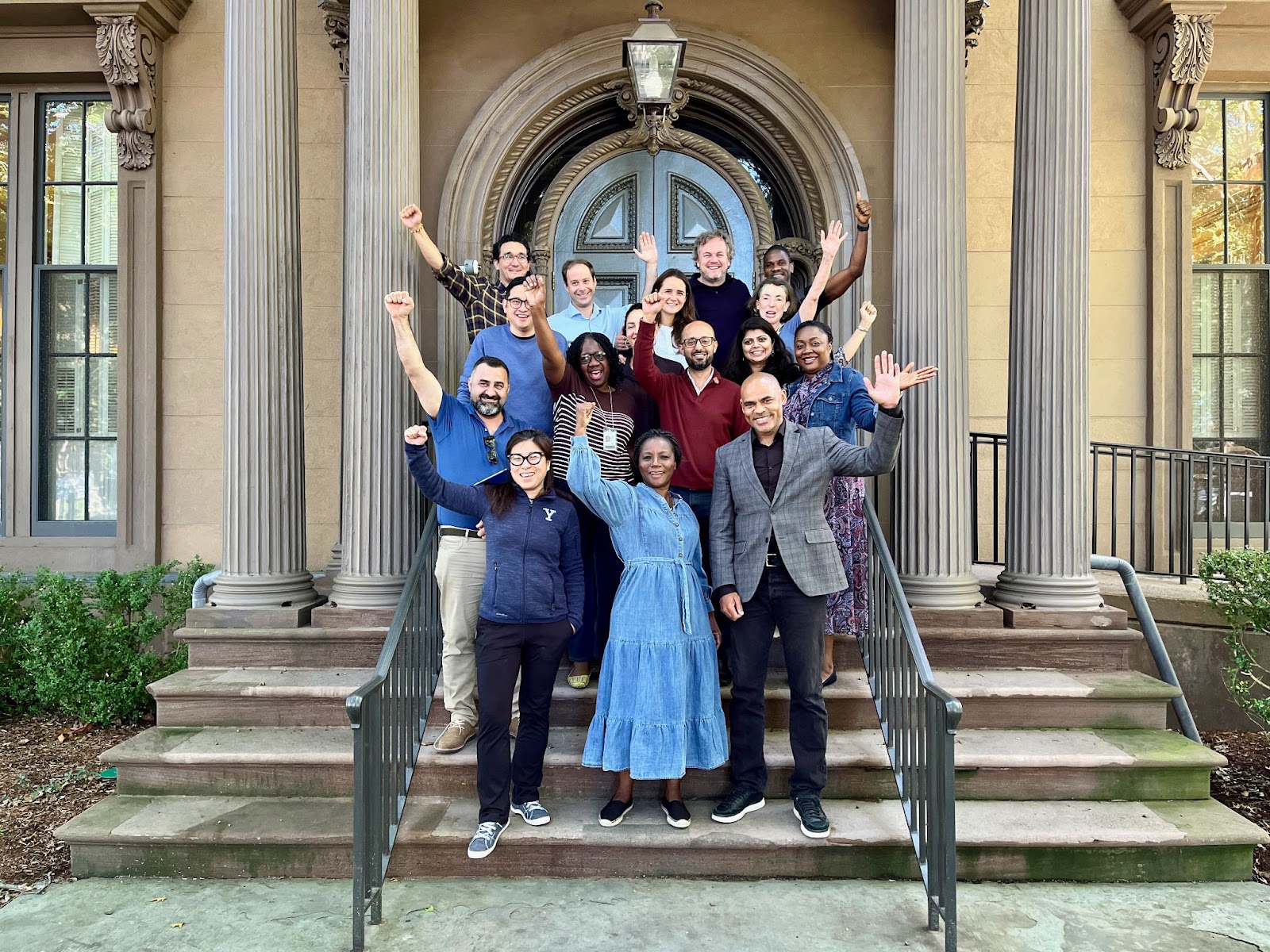Bristol Mayor Marvin Rees talks climate change at World Fellows event
The 2010 World Fellow discussed the importance of urban leadership in climate issues, anti-racism and effective leadership.

Courtesy of Timothy Stumph, Associate Director World Fellows Program
Marvin Rees, the Mayor of Bristol, U.K., spoke at an event for the Yale International Leadership Center’s Maurice R. Greenberg World Fellows Program on Wednesday, Sept. 20.
Rees was a 2010 World Fellow, and the conversation, led by current World Fellow Guy Disney, focused on how city leaders are uniquely positioned to tackle climate change.
“How do we transform the way we view economics, politics, food transport?” Rees asked attendees at the event. “Just simply by national governments eking out conversations and treaties? The layer of leadership that’s missing is the city layer.”
The World Fellows program, established in 2002, selects mid-career professionals from countries other than the United States with achievements ranging from a regional to an international level. The program runs annually from mid-August to mid-December and brings fellows together to receive professional development, network with fellow leaders and share policy expertise, all with the goal of building the “good society.”
In an email to the News, International Leadership Center, or ILC, Program Manager Yuval Ben-David wrote that Rees’ talk came as part of a series of events hosted by the ILC “to highlight leadership tackling the most complex issues in the world today.”
These events also include a talk with former Colombian president Ivan Duque last week and one with Sierra Leone’s foreign minister on Monday, Sept. 25.
Parallel to the World Fellows program is the ILC’s Emerging Climate Leaders Fellowship “for sixteen rising climate leaders from the Global South,” per Ben-David. The ILC also plans to host additional events featuring “others in [the ILC network] working across the climate space.”
Referring to Patricia Espinosa’s, U.N. Framework Convention on Climate Change executive secretary, quote — “cities are where the climate battle will be won or lost” — Rees also emphasized the role of cities as potential actors in international cooperation on climate policy.
“Cities are a track of activity and delivery that are available whether or not national governments are delivering,” Rees said. “We need to reframe cities so they’re not just seen as national possessions but as international assets.”
Jeannette Ickovics, professor at the Yale School of Public Health and member of the Resilient Cities Network, hopes to apply Rees’ advice on cross-city cooperation to her intersectional work between public health and climate change.
She said that Rees was “incredibly articulate” in discussing how cities can combat climate change with multi-sectoral solutions.
“Cities are dynamic organisms with a lot of different stakeholders,” Ickovics said. “And the complex challenges that we face, for example in climate, in health, in housing, really require all of us to work collaboratively to identify solutions that are feasible and that also enable us not just to survive but to thrive and flourish.”
The conversation also focused on Rees’ experiences in handling racial tensions in Bristol. In June 2020, at the height of Black Lives Matter protests in the U.K., Bristol demonstrators pulled down a statue of Edward Colston, who was a trans-Atlantic slave trader in the 17th century.
As the first Black mayor of African descent in the UK, Rees said that he faced pressure from opposing sides on how to handle the controversy surrounding the statue. He could not, he said, condone damage to public property while also being a descendant of people who were enslaved.
“I’m the first Black African heritage mayor [of a major city] in Europe,” Rees said. “If the first thing I go and do is take down a statue of a white slave trader, who many white people see as synonymous with the identity of the city, what do you think I speak about for the next four years, and what do you think the consequences are for the next Black people to come forward to try and get elected?”
Rees added that he thinks the situation was a binary option in a world that “doesn’t fit with binary options.”
This view, Rees said, remains a problem that deserves attention in coming years.
“One of the big challenges for the way we do politics in the future is that we start dealing with the fact that certain problems are not solvable in a binary way, and two difficult things can be true at the same time,” Rees said.
The ILC’s Climate Fellows will attend the Conference of the Parties, or COP 28, in Dubai this winter.







